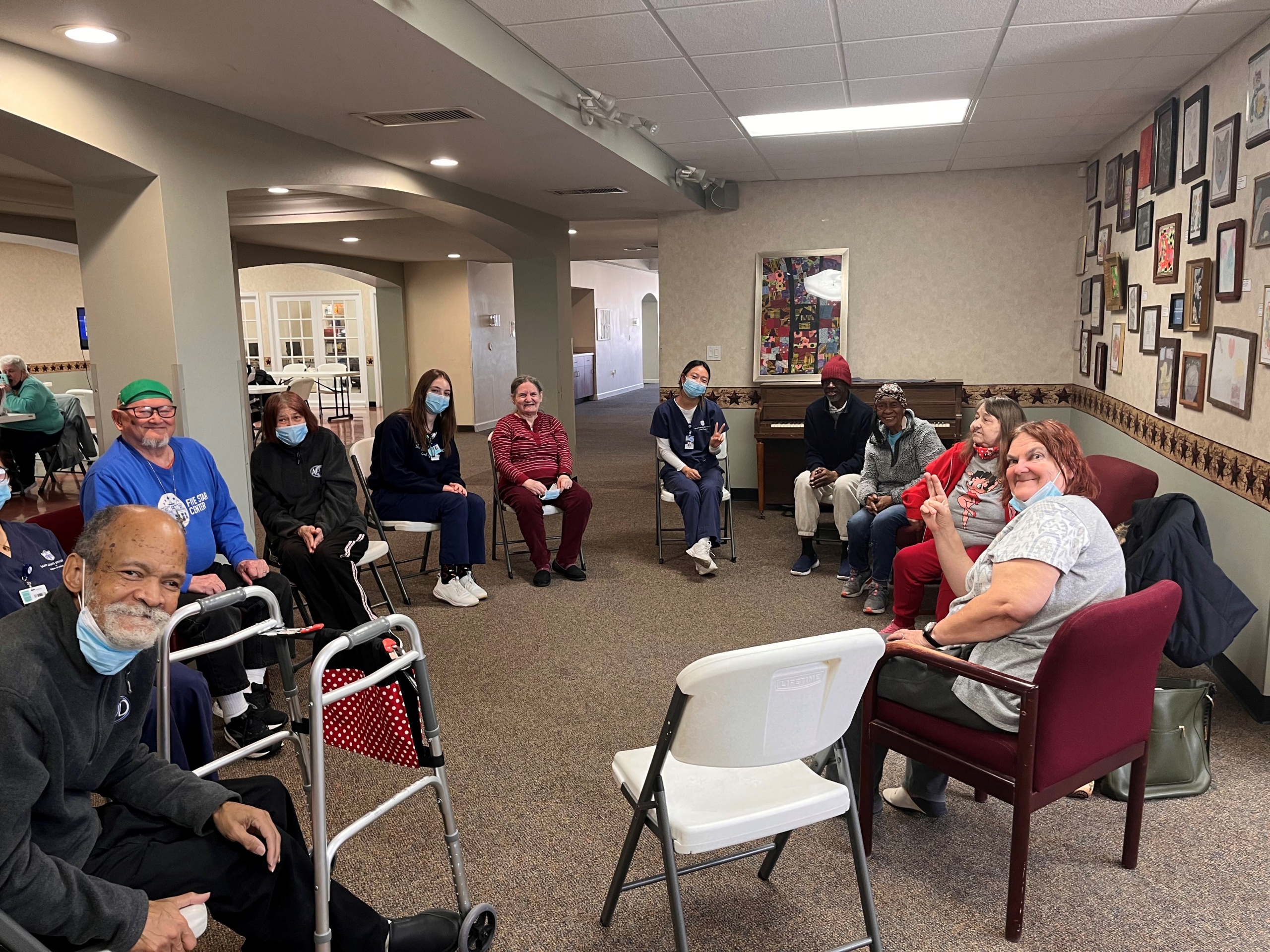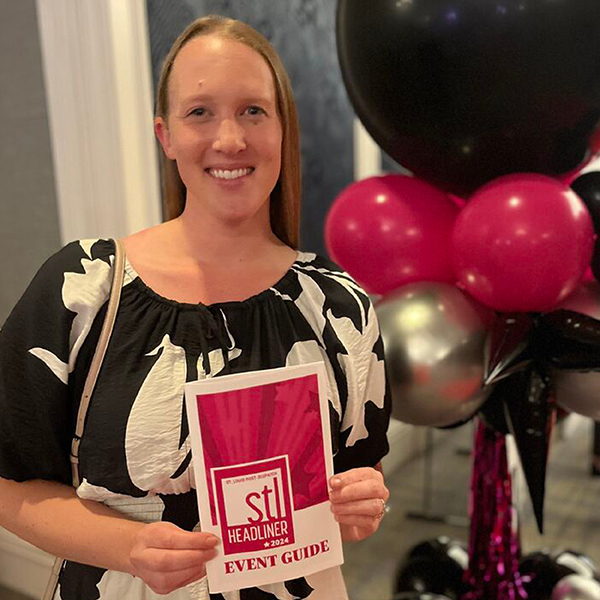Nonprofit Spotlight: Project Present
When Tracy Marak’s 84-year-old mother was diagnosed with Alzheimer’s, Marak realized her life was about to change dramatically. “I knew I’d be the primary caregiver for Mom, and I wanted to be sure we could keep her as happy and healthy as possible,” the then 45-year-old mother of two teens said. “I soon learned it was a challenge to balance caring for my mom, my own family, and myself while dealing with the emotional aspects of watching the intellectual decline of a woman I loved and respected.”
Unfortunately, Marak’s situation isn’t unique. According to the Missouri Department of Health and Senior Services, over 120,000 Missourians live with Alzheimer’s or related dementias. Furthermore, there are almost a quarter million Missourians providing over 350 million hours of unpaid care for those with this devastating illness. For these caregivers, time and financial commitment are only part of the struggle. The emotional toll of trying to connect with a distant, agitated, or unresponsive loved one can be physically and emotionally exhausting.
Ann Marie Mohr, founder of Project Present, knows that those suffering from dementia and related diseases aren’t the only ones affected. “Project Present’s mission is to improve the quality of life for older adults, caregivers, and individuals living with Alzheimer’s disease and related dementias.” Mohr, Master’s in Drama, Certified Applied Improv Practitioner, and Certified Dementia Practitioner takes a unique and effective approach to this problem. “We foster connection and cultivate creativity through three types of programming–communication training, caregiver support groups, and improv sessions.
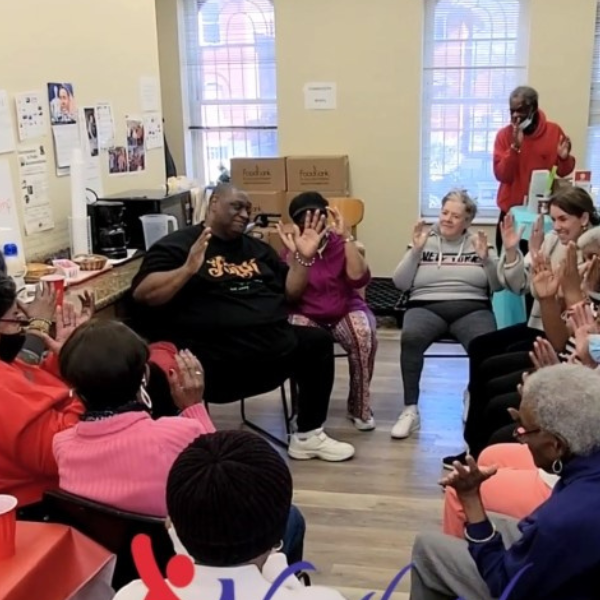
Communication training helps both patients and caregivers deal with seemingly straightforward tasks that have become complex for those experiencing dementia-related conditions. “You know, being told to put on one’s shoes might be very complicated for someone living with dementia. They might not recall where their shoes are, how they put them on their feet, or even what shoes are.” Project Present addresses issues like this and suggests methods to help patients and caregivers manage these types of situations. Mohr explains, “Mirroring and other improv strategies can act as cues for those with dementia to help them navigate situations when a purely verbal command isn’t effective.”
Project Present also offers support for caregivers. These sessions are offered in person and virtually. The goal is to bring individuals together to share their stories and experiences as carers. Participants are often in different stages of the caregiving process, and this diversity helps people brainstorm tactics to consider how to manage situations from different perspectives. “It’s pretty common for caregivers to feel inadequate, frustrated, and guilty. The support group acts as an emotional counter to what caregivers might be feeling day in and day out.” While discussions can touch on sensitive topics, the improv-trained facilitators work to infuse meetings with joy and laughter when appropriate.
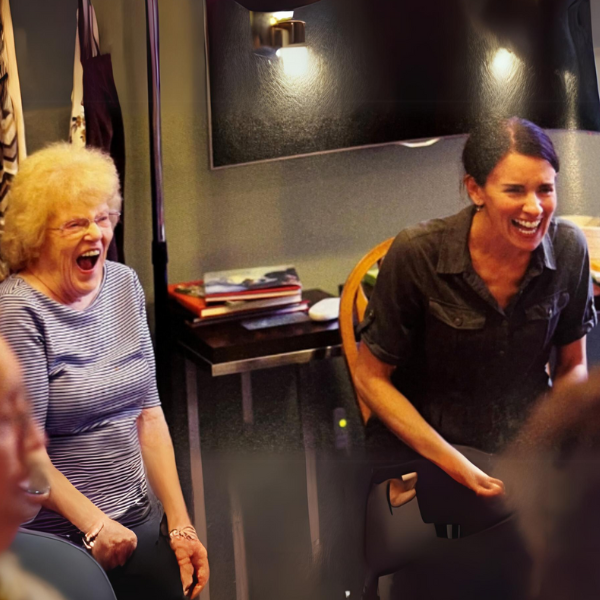
The third component of Project Present involves practicing improv through games and exercises. Marak, whose mother passed away several years ago, remembers the improv sessions as highlights of a challenging time. “Even though Mom didn’t fully understand what was happening most of the time, during improv sessions she was able to relax and live in the moment because there was no way to be wrong or make mistakes. It turned out her sense of humor was still fully intact! Improv was by far the most enjoyable activity I did with my mom during those last few years.”
Mohr says Marak’s experience with Project Present is typical. At the start of sessions, facilitators ask participants how they rank their mood on a smiley face scale. They’ve found that many participants identify with an improvement in mood from their experience. “We feel that is really exciting! Someone living with memory loss or dementia might not remember that they were at a session, but one thing we do know is that they leave the session with an awesome feeling and in a happy mood.” Mohr believes those experiences promote harmony in what can often be tense relationships.
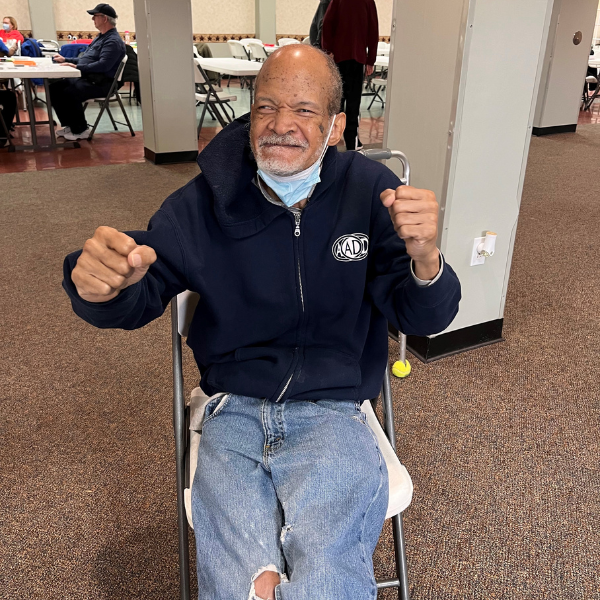
“It’s pretty easy to understand that someone living with dementia might feel inadequate and depressed. After all, they’re told no all the time.” A basic tenant of improv is that nothing is wrong, and there are no mistakes. “‘Yes, and…’ is something we love at Project Present, and we’ve found this accepting mindset results in a lot of laughter for those with dementia and their caregivers.”
People interested in taking part in Project Present can learn more about their caregiver support groups, communication training, and improv sessions on their website. “We partner with a lot of organizations and adult day centers, which is important because some of these centers are very under resourced, and it is really special to help where we can make such a difference.”
Donations and support are welcome. “Historically, our one big fundraiser each year is our trivia night, but we are excited to be a part of the St. Louis Community Foundation’s Give STL Day for the first time this year.” Morh explains that in addition to the potential financial benefits Project Present might receive through Give STL Day, she hopes the event raises awareness of the program. “All three of our programs free, and we want to serve people by helping them communicate in new ways, learn from one another, and experience joy even for a brief time. After all, we know that laughter is the best medicine.”

